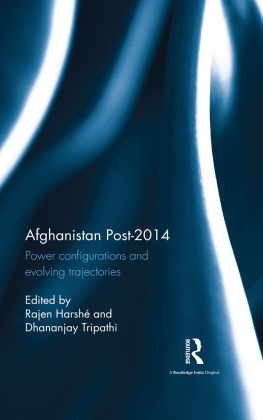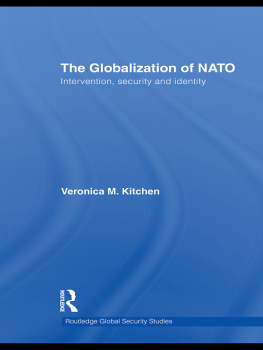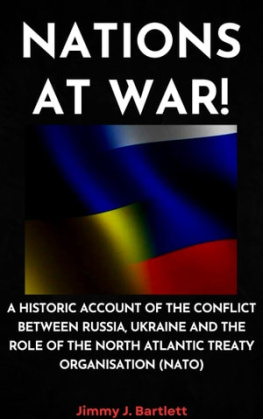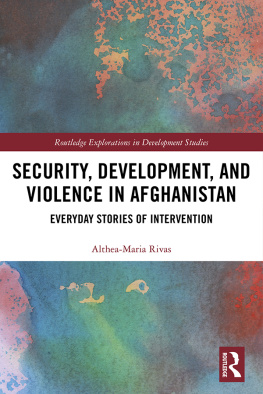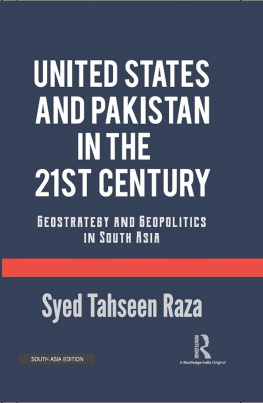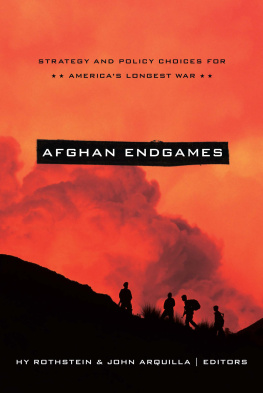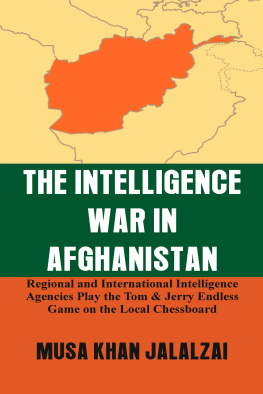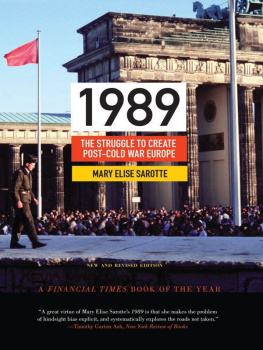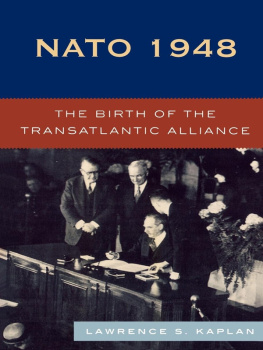Afghanistan Post-2014
Owing to its geostrategic location and mineral wealth, Afghanistan has acquired significance in the inter-state politics of Asia as well as world politics during the past decades. This book outlines Afghanistans efforts to build a stable and peaceful democratic polity with external military support from the United States and its NATO allies. It also analyses the nations development initiatives with major powers such as India, the United States, Russia, and Germany.
The volume:
- brings to the fore ongoing tensions within the Afghan polity and its continued impact on Asian/world politics;
- discusses topical themes such as the withdrawal of US troops and non-traditional security; and
- presents perspectives from scholars and experts from around the world, including Afghans.
This work will be useful to scholars and researchers in political science, international relations, sociology, and area studies.
Rajen Harsh is Visiting Professor in the Department of International Relations, South Asian University, New Delhi, India. He has been President of the G. B. Pant Social Science Institute of Allahabad since August 2014 and was the first Vice Chancellor of the University of Allahabad (200510) after it regained central status.
Dhananjay Tripathi is Assistant Professor at the Department of International Relations, South Asian University, New Delhi, India.
First published 2016
by Routledge
2 Park Square, Milton Park, Abingdon, Oxon OX14 4RN
and by Routledge
711 Third Avenue, New York, NY 10017
Routledge is an imprint of the Taylor & Francis Group, an informa business
2016 Rajen Harsh and Dhananjay Tripathi
The right of Rajen Harsh and Dhananjay Tripathi to be identified as the authors of the editorial material, and of the authors for their individual chapters, has been asserted in accordance with sections 77 and 78 of the Copyright, Designs and Patents Act 1988.
All rights reserved. No part of this book may be reprinted or reproduced or utilised in any form or by any electronic, mechanical, or other means, now known or hereafter invented, including photocopying and recording, or in any information storage or retrieval system, without permission in writing from the publishers.
Trademark notice: Product or corporate names may be trademarks or registered trademarks, and are used only for identification and explanation without intent to infringe.
British Library Cataloguing in Publication Data
A catalogue record for this book is available from the British Library
Library of Congress Cataloging-in-Publication Data
A catalog record has been requested for this book
ISBN: 978-1-138-95690-2 (hbk)
ISBN: 978-1-315-66547-4 (ebk)
Typeset in Galliard
by Apex CoVantage, LLC
To Professor G. K. Chadha,
The First President of South Asian University
(10 June 19401 March 2014)
Contents
RAJEN HARSH AND DHANANJAY TRIPATHI
RAJEN HARSH
SIDDHARTH MALLAVARAPU
OMAR SADR
DHANANJAY TRIPATHI
JAYANT SINGH
MIRWAIS BALKHI
SANDRA DESTRADI
NIKOLAY N. GUDALOV
SHAJI S.
STEPHEN KINGAH
ARPITA BASU ROY
ATHAR ZAFAR AND DINOJ K. UPADHYAY
Afghanistan has virtually been at the centre of debates in contemporary international relations owing to a queer combination of several factors. These factors include the rise of terrorism and the consequent asylum offered by the Taliban regime (19962001) to diverse terrorist outfits, the involvement of the USA-led North Atlantic Treaty Organization (NATO) forces in Afghanistan at the dawn of this century to bring about peace, democracy and stability, gross violation of human rights, drug trafficking, and the advent of radical Islamic groupings with a fundamentalist outlook. With such multiple and complex developments, Afghanistan has virtually offered a laboratory to a wide variety of social scientists from different locations to understand interethnic conflicts, religious extremism, terror, and anatomy of the military interventions of Great Powers. The continued relevance of these areas as dominant discourses certainly warrants a fresh look and search in terms of offering new perspectives on the recent and current developments in Afghanistan. This modest collective effort is in the same direction. On the one hand, it tests prevalent academic concepts and theories with solid empirical evidences. And on the other hand, it endeavours to peep into the future with an idea of searching for new pathways by mulling over likely trajectories of future developments in Afghanistan and even suggesting likely policy alternatives.
In this context, after analysing some of the significant background realities, this volume also reflects upon the likely developments in post-2014 Afghanistan. For 2014 is a year that began to witness formal withdrawal of the USA-led NATO troops from Afghan soil. The exit of the NATO, indeed, opens up a new page in the history of Afghanistan. In fact, the very notion of military intervention by external forces and powers is incompatible with the very being of the sovereign nation state. With such intervention, evidently, Afghanistan was robbed of its sovereignty. In that case, should the drawdown be viewed as a positive development? Incontestably, the withdrawal of foreign troops from its soil will give Afghanistan an opportunity to choose an independent course while building its incipient democracy and launching its developmental projects. In any case, the presence of foreign troops cannot be a permanent guarantee of peace. Thus, the people of Afghanistan will, after long suffering and protracted civil wars, strive to be masters of their own destiny and become active subjects and not passive observes of their own history.
However, taking a romantic view of the trajectories of developments post-2014 may sound imprudent at this stage. Contrary to positive aspects of the drawdown, several apprehensions need to be entertained about the future of Afghanistan. Multi-ethnic Afghanistan, which is at the crossroads of South, Central and West Asia, is hardly a politically stable and safe space owing to the mushrooming of radical Islamic groupings that embrace terrorism. Even though Osama Bin Laden has been eliminated, the Al-Qaeda is intact. Also, the Taliban was forced to depart from Kabul (2001) but was seldom defeated emphatically. Afghanistan has had a brief date with democracy and in the recently concluded presidential election (2014) the Ghani regime has taken over from Karzai. The processes of reconciliation among warring factions and groups are still in progress, and the Afghan security personnel still require both logistic and material support in order to ensure stability and semblance of order. At this juncture, the government has also started negotiations with the Taliban, but clouds of uncertainty continue to hover over Afghanistans future. Unsurprisingly, there is no unambiguous evidence to conclude that the Taliban has snapped its ties with the Al-Qaeda.
Keeping several complexities related to domestic and international relations of Afghanistan in sight, the contributors in this volume have ventured to engage with the developments before and after 2014 to capture a sober and balanced overview of that country. This modest effort is a sincere effort on the part of the Department of International Relations of South Asian University (SAU) to understand contemporary Afghanistan within the wider frame of world politics. The department had organised an international seminar on Changing Scenario in Afghanistan: Implications for South Asia in 2013. It was funded by the Konrad Adenauer Stiftung (KAS). As a result, several experts from different disciplines and locations could gather together to work out their understanding of the situations in Afghanistan post-2014. During the discussion, a consensus emerged among the participants that we should carry forward this exercise of academically analysing the prospects and challenges to post-2014 Afghanistan on the basis of our understanding of recent and ongoing developments. Although Afghanistan is central to the theme of this book, the contributors have not merely viewed it while losing sight of contemporary international relations. Thus, the entire range of issues concerning Afghanistan, such as drug trade, terrorism, developmental problems, inter-ethnic rivalries, and so on have been analysed on a wider canvas. Moreover, the collection is truly international in its spirit and nature, considering the fact scholars from Russia, Germany, Belgium, and Singapore have contributed to this volume, apart from those in South Asia.

